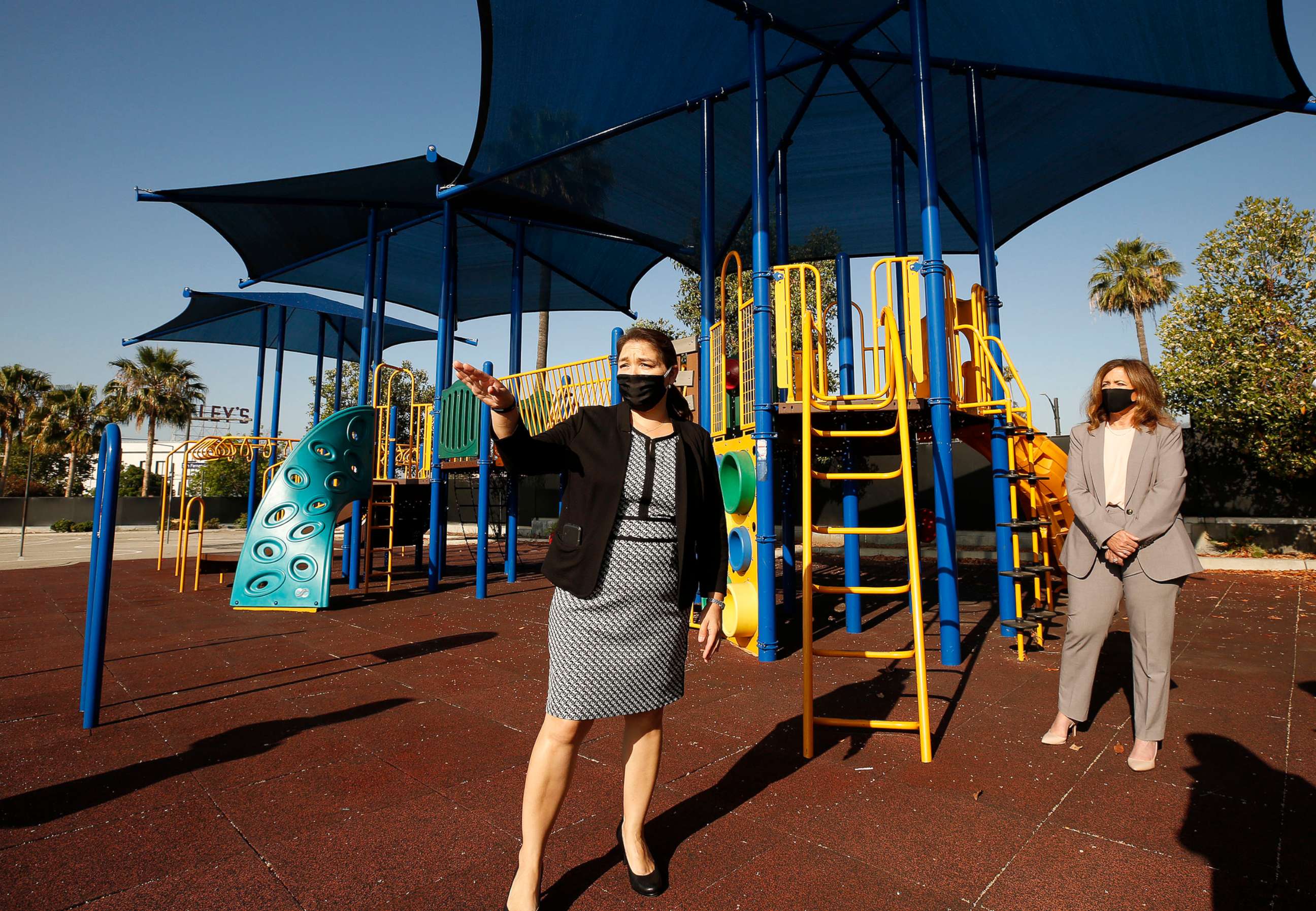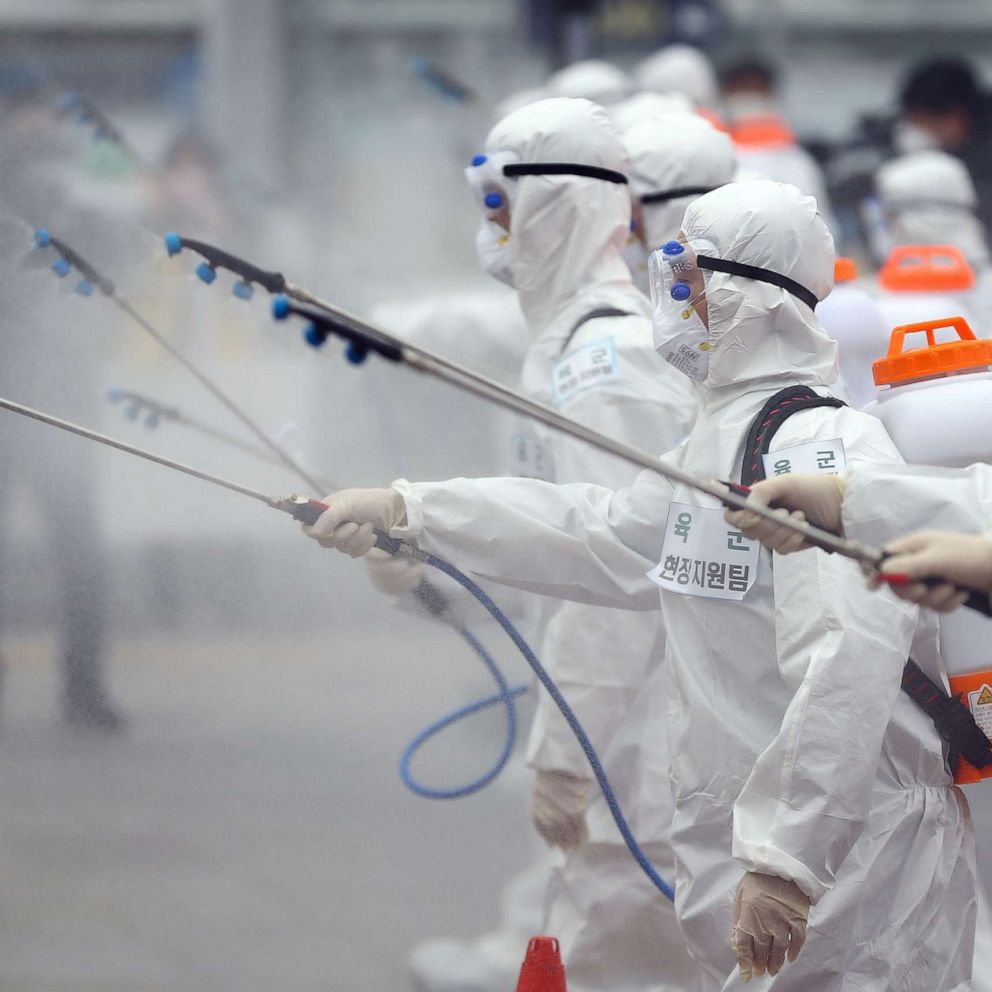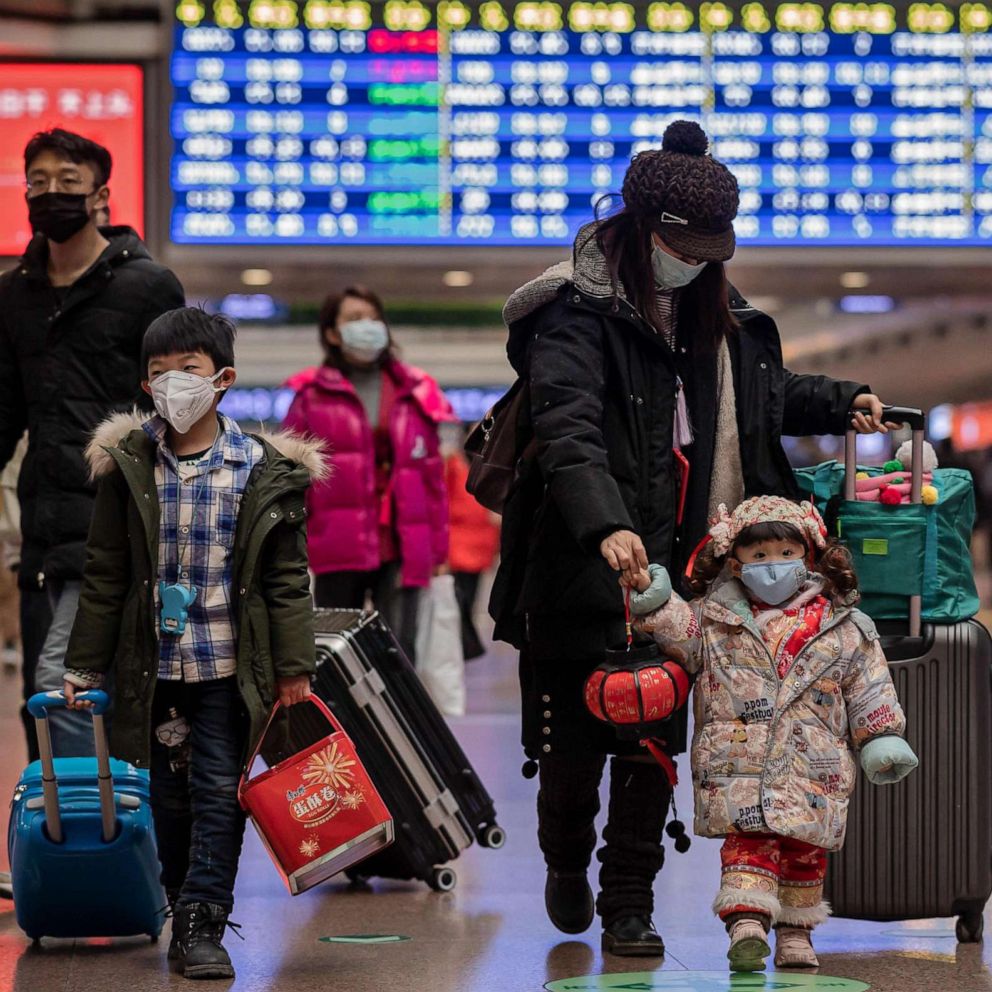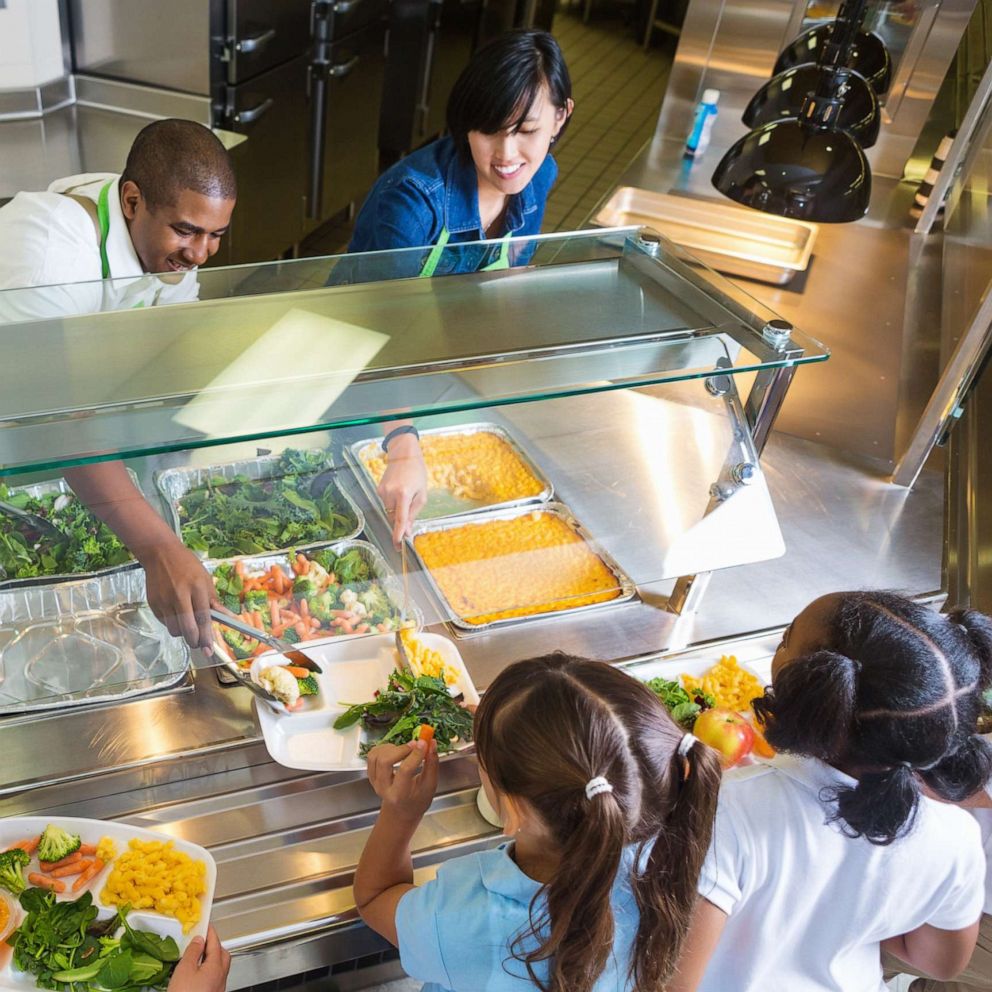Lack of guidance inspires improvised reopening plans for schools
The uncertainty is encouraging some districts to get creative.
Texas Gov. Gregg Abbott this month offered up a plan: Public schools could reopen for summer classes starting June 1, provided they follow the state education agency's guidelines like meeting in small groups and spacing desks 6 feet apart.
But since that May 18 announcement, Texas has become an example of just how difficult returning to school can be. Some teachers in Texas now say they are worried about returning and getting sick, while administrators have said they need more guidance before making any definitive calls about what might happen in the fall.
"I've already seen an uptick in folks that hadn't thought about retiring -- that have been in the profession for 25-plus years, that had not thought about retiring anytime soon that are now -- because they themselves are immunocompromised," said Noel Candelaria, the president of the Texas State Teachers Association.
"And with the uncertainty of not knowing what's going to happen and not having any clear guidelines and direction and orders from the governor and the Texas Education Agency for districts to follow, they're opting to retire already, of which they hadn't thought about," he told ABC News.
As schools dismiss for the summer, the uncertainty surrounding returning this fall is rattling families and educators alike.
President Donald Trump has urged schools to reopen as states look to kick start their economies. However, one of the administration's top public health officials, Dr. Anthony Fauci, has advised that communities be cautious and consider the unknowns of the coronavirus -- particularly when it comes to children.
Tune into ABC at 1 p.m. ET and ABC News Live at 4 p.m. ET every weekday for special coverage of the novel coronavirus with the full ABC News team, including the latest news, context and analysis.
Without a unified federal approach, states and localities have been left on their own to navigate what comes next for the nation's schools after the novel coronavirus forced them to close earlier this spring.
Educators and officials across the country are working together to figure out ways to bring students back to the classroom this fall, like rolling out guidance for social distance learning in Colorado and planning in case virtual classes have to continue for some students in Los Angeles County.
Rena Honea, the president of Alliance AFT local 226, a teachers' union in Dallas, said her school system is planning on starting school in August.
"Just what it looks like is the big question," she said.

While the Centers for Disease Control and Prevention has supplied the states with voluntary guidelines -- it encourages having children eat in their classrooms instead of a cafeteria, for example -- the Trump administration has made clear that decisions about reopening should be based on local data.
The result varies, as local officials juggle competing priorities on everything from a child's access to air conditioning, food and internet at home, to social distancing aboard school buses and whether parents feel safe sending their children back.
Other concerns include local hospital capacity and whether confirmed cases go up in each area -- an indication of community spread -- in June and July.
There is no promising treatment of novel coronavirus, and mass production of a vaccine isn't expected until 2021.
"We know that we will go back to school and we know that until we have a vaccine, we're going to constantly need to assess and reconsider, revise plans," said Becky Pringle, the vice president of the National Education Association.
The uncertainty is encouraging many districts to get creative.
Interim Superintendent of Houston Independent School District Grenita Lathan told ABC News HISD is planning for a variety of possible scenarios in what she described as "kind of a playbook."
"We're planning, but we're waiting on -- we need official guidance from our state education agency, as it relates to attendance," Lathan said. "How will we be able to calculate attendance, especially for students that choose to continue to learn in a virtual format. What will our funding look like? What will be the guidelines, you know, and criteria that TEA is going to impose on school districts."
"So, once we get that information and we receive guidance from the CDC and also our … local, county and city health officials, then we will make that decision on the route that we're taking," she added.
To get students back in the classroom in San Antonio, schools expect to reopen come fall using a "hybrid model," said San Antonio Independent School District Superintendent Pedro Martinez.
This could mean implementing a staggered schedule, with some children going to school for in-person instruction in the morning, while continuing virtual learning in the afternoons, and another group keeping the opposite schedule. Or schools could have some students come for in-person instruction on Tuesdays and Thursdays, while others come in on Mondays and Wednesdays.
Martinez hopes it will work because many of his students live with siblings in small houses or apartments, or don't have access to the internet.
"They don't have AC when we have 100-degree weather here in San Antonio. And so they're just not ideal for learning. And so, that's one of the reasons why one of our guiding principles is we want to maximize the number of students that can be in our building for that reason," Martinez said.
And no matter what the governor orders, kids and teachers won't return if they aren't confident they'll be safe.
"I think it needs to be well known that our educators are totally committed to doing their job of doing it well," said Honea. "But they want to do them safely. And they want to be, they want to have the resources needed to do those jobs well."
ABC News' Anne Flaherty contributed to this report.
What to know about coronavirus:
- How it started and how to protect yourself: coronavirus explained
- What to do if you have symptoms: coronavirus symptoms
- Tracking the spread in the US and Worldwide: coronavirus map







